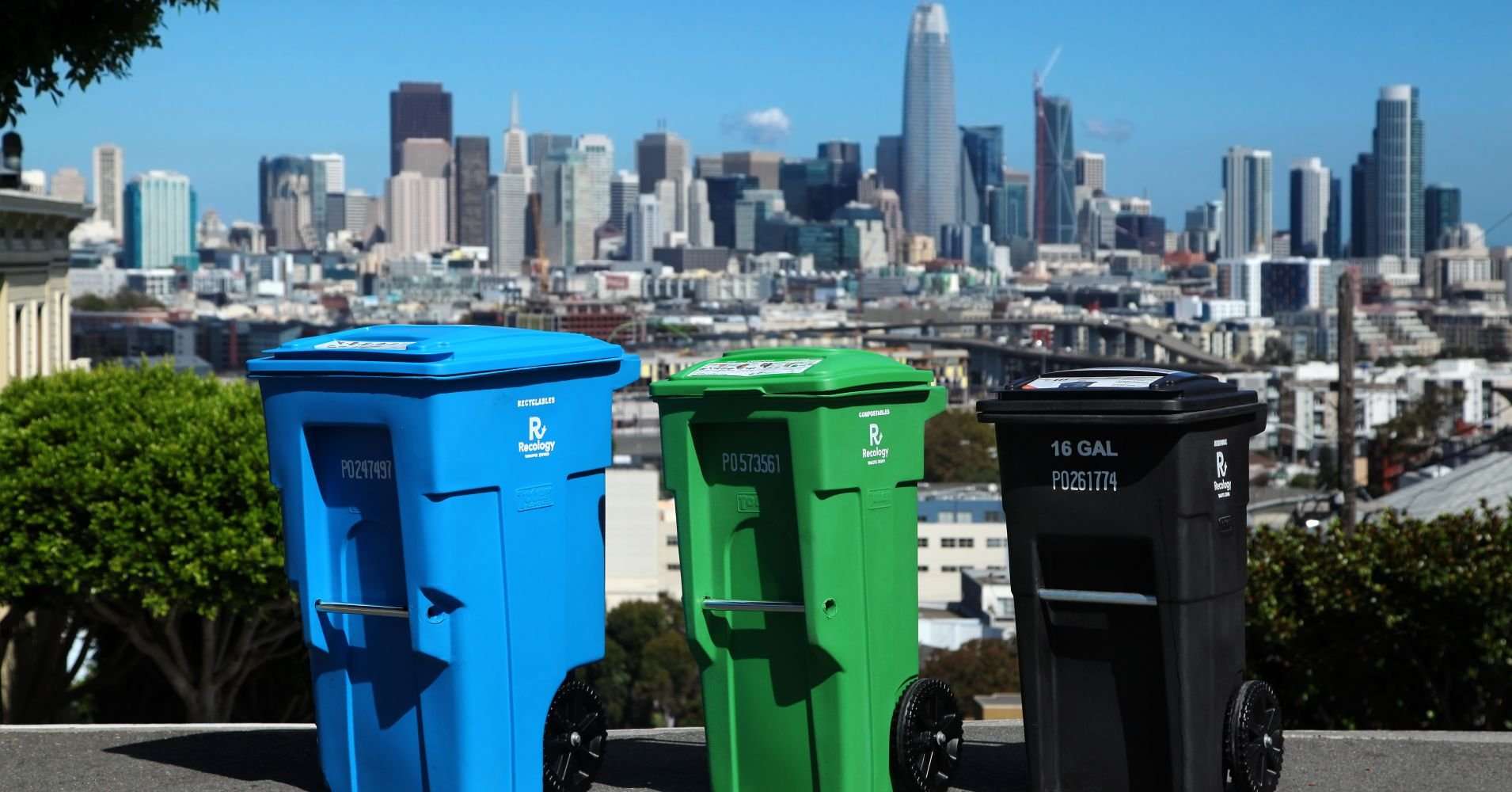The average American produces about 4.4 pounds of waste per day. Roughly 1.5 pounds of that is composted or recycled, meaning the U.S. avoids sending just 34 percent of its waste to landfills, according to the EPA.
San Francisco provides a much different narrative. Thanks to bold public policy and educational initiatives, the city diverts about 80 percent of its waste from landfills, or more than 1.5 million tons every year.
Ultimately, San Francisco aims to reach zero waste. That means recycling, composting, reusing, and reducing consumption so that nothing goes to either the landfill or incineration.
The city hopes to achieve this goal by 2020. But even if it doesn’t, San Francisco is already way ahead of other cities. For example, New York only diverts about 21 percent of its waste and Chicago is at about 10 percent.

ClickClack_Bam on July 15th, 2018 at 22:21 UTC »
Yea that title is in stark contrast with this one: "How dirty is San Francisco?"
https://www.nbcbayarea.com/investigations/Diseased-Streets-472430013.html
"The NBC Bay Area Investigative Unit surveyed 153 blocks of downtown San Francisco in search of trash, needles, and feces. The investigation revealed trash littered across every block. The survey also found blocks dotted with needles and blocks sullied with piles of feces."
"She said she often has to pull her daughter out of the way in order to keep her from stepping on needles and human waste. “I just had to do that this morning!”"
"While some streets were littered with items as small as a candy wrapper, the vast majority of trash found included large heaps of garbage, food, and discarded junk. The investigation also found 100 drug needles and more than 300 piles of feces throughout downtown. "
"He warned that once fecal matter dries, it can become airborne, releasing potentially dangerous viruses, such as the rotavirus. “If you happen to inhale that, it can also go into your intestine,” he said. The results can prove fatal, especially in children."
rlhoffmann on July 15th, 2018 at 18:36 UTC »
The question you should be asking is where they "divert" it to.
dny6 on July 15th, 2018 at 16:21 UTC »
How do you get zero waste? certainly there are things that are no where near economical to reuse?